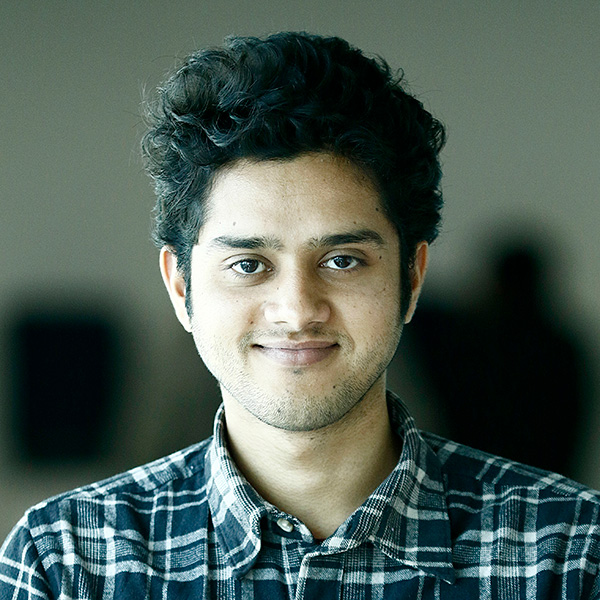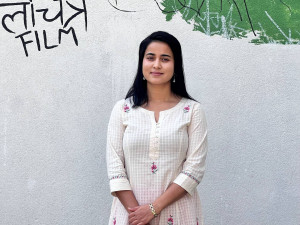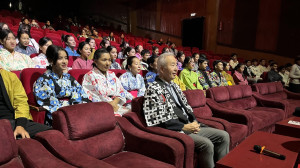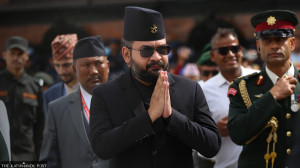Culture & Lifestyle
Artists decry the growing tendency to arrest musicians for their lyrical content as autocratic censorship
In the wake of singer Durgesh Thapa and rapper VTEN’s arrest, Nepali artists say that the police’s actions are alarming and people need to resist them.
Timothy Aryal
In the wake of rapper Samir Ghising, VTEN’s arrest, members of Kathmandu's hip-hop community and artist circles have denounced the police’s actions, with some even taking to social media to sing verses against the detention.
VTEN was arrested on Thursday morning for promoting “anti-social values” through his songs, particularly the popular ‘Hami yestai ta ho ni bro’. The rapper was released on Friday evening after massive public outcry surrounding his arrest. His arrest and release comes on the heels of another similar arrest—of Durgesh Thapa for his song, ‘Happy Tihar, chiso beer’.
The rapper’s arrest was met with dismay and fury by the Nepali hip-hop community with popular rapper Utsaha Joshi ‘Uniq Poet’ taking to Facebook to rap about how the police’s actions are an indication of an “autocratic system”.
[Read: Nepal’s government should check itself before it wrecks itself]
“It is the artist’s job to speak the society’s truth...,” Joshi raps in a widely shared video. “My only question is this: is this a case of an abuse of power?”
“This [VTEN’s arrest] is directly or indirectly programming the people with a level of fear and suppressing them. Any idea expressed that doesn’t directly harm/hurt someone shouldn't be punished,” Joshi told the Post. “I think Nepal Police is misusing its powers. With so many rape cases and other heinous crimes still unsolved, Nepalis are already suspicious about the way the police force works and the latest case might make us not trust their work even more. An artist should be allowed to express what s/he wants to.”
But curiously, there is a line in Joshi’s song, released hours after VTEN’s arrest, that says, “in this case, it is also the artist who is at fault”.
[Read: Rapper’s arrest is latest in government’s attempt to crack down on free expression]
When asked what he meant by this, Joshi said that while hip-hop is looked down upon as a disgrace and evil by Nepali society, it is rappers’ responsibility to adjust according to the psychology of the masses.
“This is the only reason why I said that, because it is our responsibility to make it socially acceptable for now because there are already so many people against it, even maybe our family members,” Joshi said.
Meanwhile, another of Nephop’s up-and-coming stars, Sacar Adhikari ‘Lil Buddha’ posted a sarcastic video of one of his upcoming songs that features some swear words and generous use of the word ‘ganja’. “So I guess the song is cancelled now,” the caption of the video reads.
The artists the Post spoke to all said that the arrest of singers indicates the government’s increasing tendency towards autocracy.
Yadav Kharel, a veteran lyricist and filmmaker, said that arresting artists is a “conservative decision by a leftist government”.
“The detention is completely against free speech. It’s not the police’s job to act as a censorship body,” Kharel said. As the video was uploaded according to Youtube’s guidelines, including an age filter, it’s not the police’s responsibility to engage in moral policing.
“The artist in question is rapping; he is not singing a bhajan,” said Kharel, who is 76. “The move shows the government’s failure to keep up with rap culture.”
Rap and hip-hop started out in New York City in the 70s as a form of entertainment—and increasingly, protest—by African-Americans against racism, oppression and police brutality. Hip-hop has rebellion and an irreverence for authority encoded in its genetic material, something that many marginalised groups in countries across the world have embraced. One of this year’s biggest Bollywood films was Gully Boy, a film based on the true story of a Mumbai rapper from the Dharavi slums. In Nepal too, rap has often been used to talk about neglected issues like mental health, addiction and the stories of the marginalised.
According to Kharel, this administration doesn’t just appear to be ignorant of rap and hip-hop but is becoming even more regressive than the Panchayat system.
“Even during the Panchayat, I could freely recite poems such as ‘yo rajya kasto, ramrajya jasto’ (How is this regime? Just like the Lord Ram’s) satirising the parochial nature of the state, right in front of the king’s family. I didn’t get arrested,” Kharel said. “The government’s activities indicate growing tendency towards autocracy. This is not right.”
Hari Bansha Acharya, who was arrested several times during the Panchayat era for his visual skits against the regime, did not wish to comment directly on Ghising’s arrest but said that he was surprised by the decision to arrest a singer just because he sang about drinking beer, referring to Thapa’s earlier arrest.
“Songs about alcohol have been popular for decades, like Kumar Basnet’s hit ‘Rausi khana jaam’ (let’s go drink rausi),” said Acharya, who is one half of Nepal’s most popular comedic duo. “Beer is legal and ubiquitous and many people drink it during festivals. It’s not clear how singing about drinking beer would be anti-social.”
Acharya, however, expressed reservations about rapping about marijuana use, which Ghising was also accused of.
“I am not aware about the cultural phenomenon of rap, but since marijuana is not legal in Nepal, the artist should’ve thought twice about it,” said Acharya. “But still, detaining an artist and taking down the song can’t be a solution, unless the government can bring the song down from all platforms across the internet.”
Rapper Sudin Pokharel, one of the pioneers of the Nepali rap scene, acknowledged the responsibility of artists towards society but said that he was taken by surprise by the arrest. “The most surprising thing was: he was arrested six months after the song was released—why?” Pokharel said.
With the recent arrest of artists, many across Kathmandu’s art circle are wondering if and when their turn might come.
“The government’s actions are alarming,” said Kharel, the veteran lyricist and filmmaker. “People should resist it.”




 13.12°C Kathmandu
13.12°C Kathmandu















